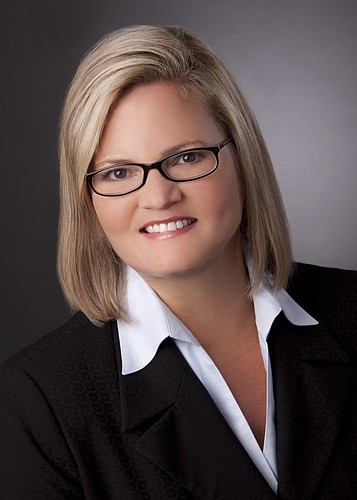
When the JEA board of directors approved a long-term employee incentive program at its July 23 meeting, the vote was taken without a complete analysis of the plan’s final cost.
In a Nov. 22 interview at JEA headquarters, utility Vice President and Chief Customer Officer Kerri Stewart said the program the board approved was in draft form.
The vote was a directive to staff to complete and implement the program, and there were no plans for additional board action after the final cost was available, she said.
“The board approved the strategy and the changes to the policy and the general structure of the plan,” Stewart said. “There were more details in the (June) compensation committee meeting, but full-blown calculations were not presented to the board in July.”
That structure included offering 100,000 performance units to all JEA employees for purchase at $10 each. The unit value would increase as the utility hit financial targets within a three-year cycle.
The plan was put on hold last week by JEA management and is on track to be rescinded by the board at its December meeting.
The City Council Auditor’s Office issued a memo Nov. 18 that included a financial assessment showing the incentive could cost JEA up to $636.6 million if the utility is sold to a private company.
JEA Managing Director and CEO Aaron Zahn sent a letter Nov. 19 to Council President Scott Wilson stating his team will recommend the board terminate the long-term incentive plan as early as Dec. 9, following growing concern from the Council Auditor.
The JEA Compensation Committee’s June presentation gave an estimated $3.4 million annual performance unit award cost based on employees’ incumbent base salaries at the time.
Stewart said the plan was part of a broader strategy to get JEA employees “to pay attention to the financial health of the utility” and address what appeared to be “a lack of buy-in or skin in the game for employees.”
Council Auditor Kyle Billy told the Council Finance Committee on Nov. 19 that non-JEA employees, specifically the city Office of General Counsel representatives who work at JEA full time, would be eligible. For Billy, that raised red flags. A plan administrator would determine who can buy the performance units.
In general, the performance incentive is open to all employees, including members of the executive team.
Payout questions by city auditor
According to Billy’s analysis, the three-year cost of the performance incentives to JEA ratepayers could be $101.35 million, based on a comparison of JEA’s audited financial statements from fiscal years 2018 and 2015.
Billy’s audit contrasts with JEA’s internal projections.
The memo shows JEA’s internal analysis, which is based on unaudited fiscal year 2019 statements and the 2022 forecast value, expects the incentives to cost JEA $15.778 million over a payout cycle, or $167.78 per performance unit.
If JEA is sold, Billy said the utility’s value will increase and so will the performance unit payouts.
If the city nets $3 billion in a JEA sale, the value of the performance units would be unchanged.
The auditor’s analysis shows the total program payout increases by more than $300 million for each additional $1 billion the city nets.
If the city nets $4 billion in the JEA sale, the total payout would be $315 million — $3,150 per performance unit. A $5 billion net proceed to the city increases that payout cost to $636.6 million.
Stewart says JEA’s decision to postpone the plan was not determined by financial analysis but by the uncertainty whether the utility will remain municipal or become a private company.
“The plan was drafted and as we were continuing to go through legal review, financial review, it was decided that until we get done with our strategic planning, it doesn’t make sense to roll it out,” Stewart said. “... It moved to fully rescinding it because we could always come up with something if we decide we’re going to be JEA as a government entity for the long haul.”
The program’s framework was recommended by third-party consulting firm Willis Towers Watson, according to a Nov. 12 letter from Zahn to city General Counsel Jason Gabriel.
Billy’s memo states the lack of a payout cap in the plan is a concern and the reason for the program’s elevated estimated costs in his analysis.
Stewart said if the plan is viewed as a governmental replacement for stock options, a cap would defeat the purpose.
“Why would any stock have a cap? Why would any performance unit have a cap?” Stewart said. “The better you are performing, the better the company is doing, the better the financial health.”